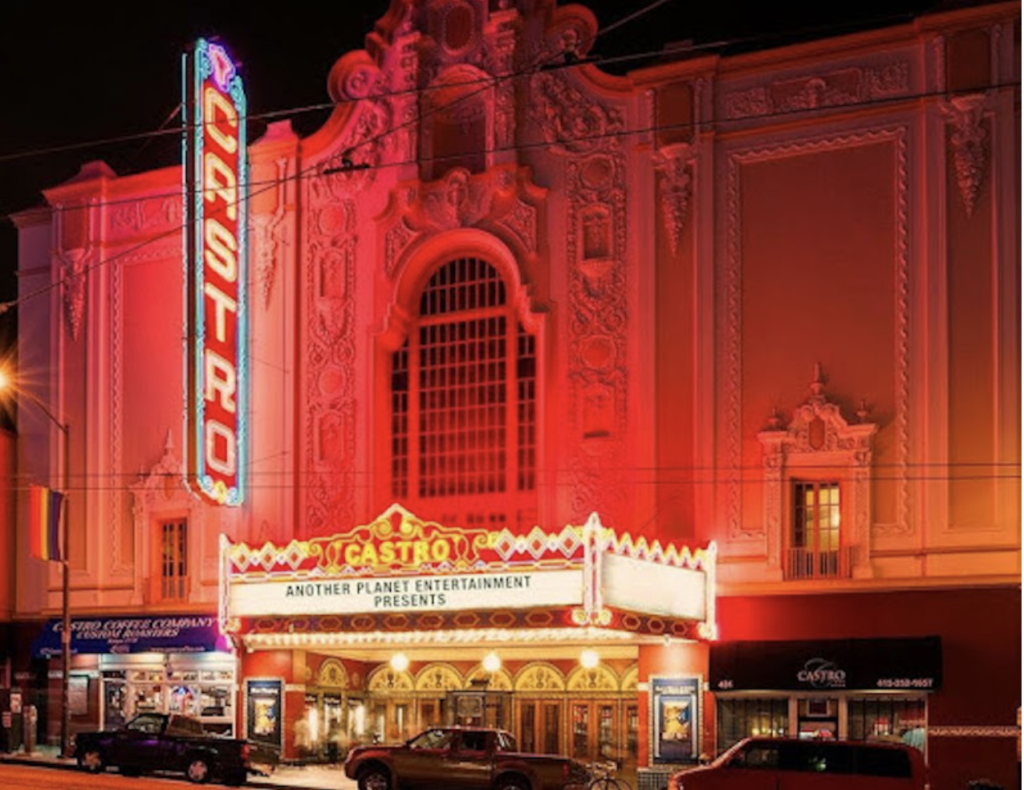The Historic Preservation Commission, after more than five hours of impassioned testimony from hundreds of people, agreed to recommend that the Board of Supes landmark the interior of the Castro Theater—but stopped short of including language that would prevent the new operator from removing the orchestra-level seats.
Although the staff report on the landmarking specifically states that the existing seats and the raked floor are significant historic elements, the commission only mentioned “seats.”
That means a lot of seats could be removed and reconfigured, preservationists said.

“It keeps us in limbo,” Stephen Torres, co-director of the Castro LGBTQ Cultural District, told me.
Gerard Koskovich, an LGBTQ historian and founding member of the GLBT Historical Society, told me that the motion only mentions “presence of seating.”
He said: “We asked for a clarification motion, and they passed a motion that was even more unclear.”
A long, long list of speakers passionately described the importance of the theater in their own, and queer community, history. “I saw utter disregard for the LGBTQ community,” Koskovich said.
Here’s a sign of what happened: Another Planet Entertainment, which has the lease on the theater and wants to remove some seats and reconfigure the theater for live music, is pleased with the outcome.
“APE has always supported the landmarking of the Castro Theater, and we are gratified that the commission vote allows us to make our case to the Planning Commission and the Board of Supervisors that some changes in the seating are necessary,” David Perry, a spokesperson for APE, told me.
UPDATE: On Thursday, the LGBTQ Cultural District put out a more hopeful message:
The staff and advisory board members of the Castro LGBTQ Cultural District are very happy
that yesterday the Historic Preservation Commission voted unanimously to expand historic
preservation status to the entirety of the Castro Theatre including, among many important
components, the rake of the auditorium, the aisles, and the seating.
This recommendation to the San Francisco Board of Supervisors sends a clear message that the
preservation and centering of LGBTQ history and culture is vital to the city of San Francisco.
We are pleased that this is based on a comprehensive San Francisco Planning document and six
hours of supportive public testimony. We also encourage the Board of Supervisors to add
additional layers of protection to this international LGBTQ community asset.
The real takeaway: this is going to be decided by the supes.
As Commissioner Richard S.E. Johns noted, “We do not have the authority to landmark anything. We can only recommend to the board.”
Johns also noted that, while a lot of the discussion revolve around whether the Castro is economically viable as a movie theater, “there is no economic study by either side. We can’t consider the economic viability.”
True enough: While Another Planet Entertainment, which has the lease on the theater, says it can’t work without adding live music and changing the seating, and opponents of that plan say that’s nonsense, nobody has made public any hard numbers.
And when this comes to the full board, Sup. Rafael Mandelman is going to play a central role. It’s his district, and I suspect his colleagues will want to defer to his judgement.
Perhaps before that happens, the board could ask the budget and legislative analyst to run some numbers: Is there a future for the Castro as a movie theater, and what would it take to make that happen?






